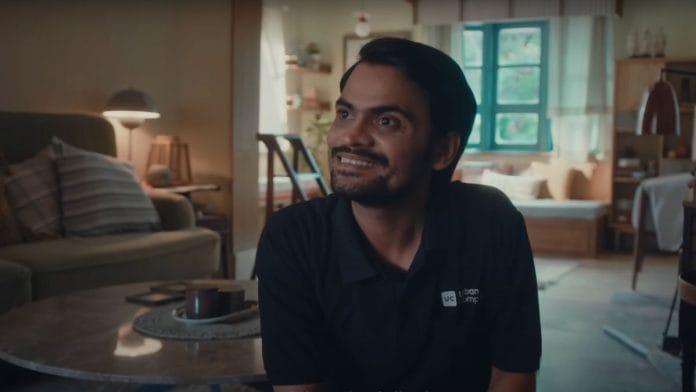Urban Company this month released the fourth installment of its Dignity of Labour series, shining a light on an often-overlooked but critical conversation: the class divide in India.
The new film, produced by Fundamental, explores the contrast between white-collar and blue-collar migration—through a Bihar-to-Bengaluru lens.
It opens with a simple interaction between an engineer and an Urban Company AC technician. The technician casually uses the Bhojpuri word “bohaar”, which means to clean or sweep, before quickly translating it into Hindi. As the two discuss their respective journeys from Bihar to Bengaluru, the technician says, smiling: “Bahut badhiya, ekdum humari tarah.” (You’re just like me.)
Taken aback, the engineer asks, “What?”. The technician explains, “Nahi, matlab aap bhi Bihar se hain. Isliye bola. Matlab aap bhi ghar se dur kuch karne aaye hain. Jaise hum bhi koshish toh kar rahe hain.” (I just meant you’re from Bihar too. That’s all. You’re also far from home trying to do something—just like I am.)
When the engineer offers a quiet apology, the technician says, “No need to say sorry among our own people.”
This brief, unassuming exchange captures the heart of the campaign.
What makes the film effective is its non-preachy tone. There’s no drama, no swelling music—just quiet realism. It doesn’t lecture the audience. It mirrors everyday life, where blue-collar workers—often working harder and contributing more visibly—remain invisible. Meanwhile, their white-collar counterparts are celebrated, valorised, and rarely questioned.
The film gently, but firmly, asks: Why is one story admired and the other ignored?
Migration bias
Importantly, the campaign resists the urge to promote its services. It doesn’t end with a sales pitch—it ends with a pause for reflection.
It asks us to look beyond labels. To see people, not professions. Journeys, not job titles. And most importantly, to offer dignity, empathy, and respect—to every kind of work, and every kind of worker.
The ad has started a small discussion in the comments section on Instagram.
“India lacks dignity of work!!!! What a beautiful ad,” a user wrote.
“This is beautiful-every journey must be respected, every work is respectful… great attempt to blur these divides,” another said.
“This video actually shows another huge unspoken division… A division inside Bihar. Wheteas Patna has become a big city with amazing infra and nearly all big brands, great convent schools, the rest of Bihar still remains poor…,” read a comment.
Urban Company’s Chhoti si Doori campaign is not another brand push. It’s a mirror held up to urban India, asking: whose story do we value more—and why?
Also read: General Insurance Council uses a talking dog to appeal to viewers. It works
Fourth chapter
This is not a one-off film, but the fourth chapter of Urban Company’s evolving narrative.
Previous installments dealt with themes like: class hierarchy in small jobs (Chhota Kaam), gender discrimination in attitude toward service roles (Chhoti Soch), and respect gap between blue- and white-collar workers, (Chhoti Baat).
By layering bias across class, caste, gender, and now regional migration, the campaign allows multiple entry points for a discussion.
Considering India’s migration landscape, where so many dreams travel miles quietly—this campaign resonates with a large community.
Brand: Urban Company
Creative Agency: Fundamental
Director: Shachi Malhotra
Production House: Emotion Pictures
Producers: Rajat Gulati and Samvedna Anand
Views are personal.
(Edited by Aamaan Alam Khan)






